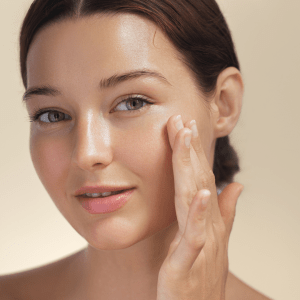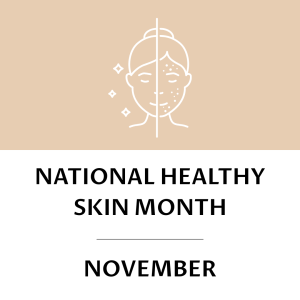Healthy Skin, Healthy Lives: Strategies for National Healthy Skin Month

Key Facts:
- Prevalence: Nearly 84 million U.S. people see a physician each year for skin disease, incurring $11 billion in direct costs (AAD).
- Skin cancer: One in five Americans will develop skin cancer by age 70; early detection yields a 99 percent five-year survival rate for localized melanoma (ACS).
- UV exposure: Approximately 90 percent of non-melanoma skin cancers are linked to ultraviolet radiation from the sun or indoor tanning (WHO).
- Workforce impact: Occupational skin diseases are the second-most common type of workplace illness, leading to productivity losses and workers’-comp claims.
Editor's Note
This article is part of the BHM Healthcare Awareness Series, designed to provide quick, ready-to-use content and links to official resources for internal staff communications, patient education, and social media.
Feel free to copy, adapt, and share.
Observation Date
November
Why it Matters
Skin disorders (from eczema to melanoma) affect one in three Americans and account for billions in annual healthcare costs. National Healthy Skin Month spotlights prevention, early detection, and daily habits that protect the body’s largest organ, making it an ideal moment for healthcare organizations to reinforce evidence-based skin-health practices with both employees and patients.
Quick Actions for Your Organization
For Leadership
Adopt a year-round UV-safety policy that includes free sunscreen dispensers at outdoor worksites and employee health fairs.
Partner with dermatology groups to host annual full-body skin-check clinics and track participation metrics for quality-improvement reporting.
For Implementation Teams
Create intranet and newsletter features that highlight daily sun-safety tips, winter-skin care guidance, and links to AAD resources.
Post Healthy Skin Month graphics on social and digital signage; spotlight before-and-after photos illustrating protective clothing and shade structures.
Coordinate “hat-and-sunscreen” challenges for outdoor staff and reward departments with the highest participation.
Resources
Ready-to-Use Assets
The following links provide resources & information for creating internal or external campaigns to support or promote this healthcare observance. Please vet these resources for alignment with your organization.

Talking Points
Copy & Paste Friendly
“Your skin is your first line of defense. This November, commit to daily SPF 30 and annual skin exams.”
“Most skin cancers are preventable and treatable when found early — check your skin every month and see a dermatologist for any changes.”
“Healthy habits like gentle cleansing, moisturizing, and sun protection keep skin strong and reduce long-term healthcare costs.”
Disclaimer: Please verify all information, usage rights, and related guidelines with the official observance organizers and your organization’s policies to ensure proper alignment.
Frequently Asked Questions (FAQ)
Q1: What is National Healthy Skin Month and why is it important?
A1: National Healthy Skin Month is an American Academy of Dermatology observance each November that raises awareness of skin-health best practices, encourages preventive care, and promotes early detection of skin conditions such as cancer.
Q2: How often should full-body skin exams be done?
A2: Dermatologists recommend at least one annual professional skin exam for average-risk adults and more frequent checks for those with risk factors such as fair skin, high mole count, or personal/family history of skin cancer.
Q3: What are the best daily practices to maintain healthy skin all year long?
A3: Apply a broad-spectrum SPF 30 sunscreen every day, cleanse gently with fragrance-free products, moisturize within three minutes of bathing, stay hydrated, eat a balanced diet rich in antioxidants, avoid tobacco exposure, and schedule at least one professional full-body skin exam annually to catch issues early.
Partner with BHM Healthcare Solutions
With over 20 years in the industry, BHM Healthcare Solutions is committed to providing consulting and review services that help streamline clinical, financial, and operational processes to improve care delivery and organizational performance.
We bring the expertise, strategy, and capacity that healthcare organizations need to navigate today’s challenges – so they can focus on helping others.
Are you ready to make the shift to a more effective process?
